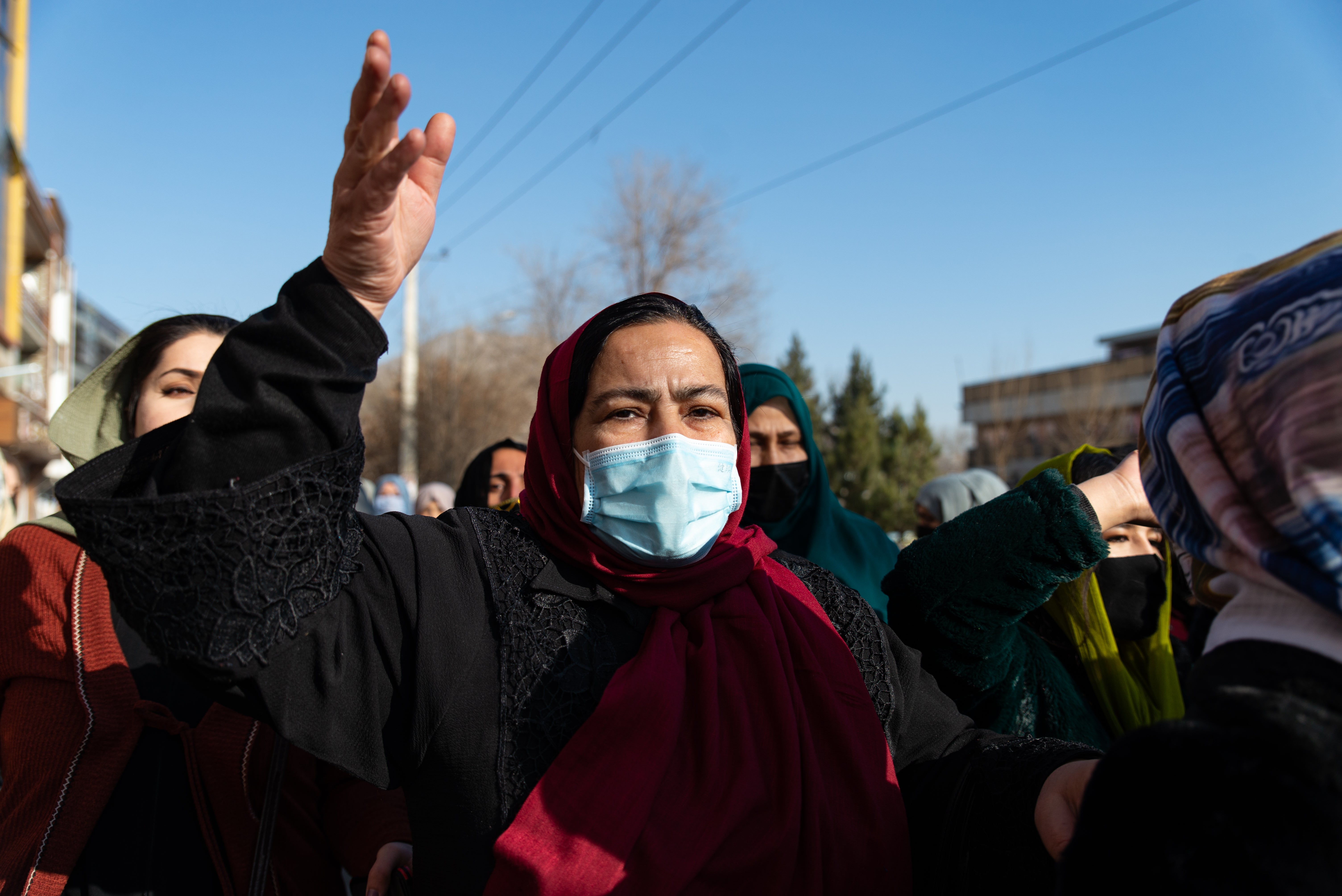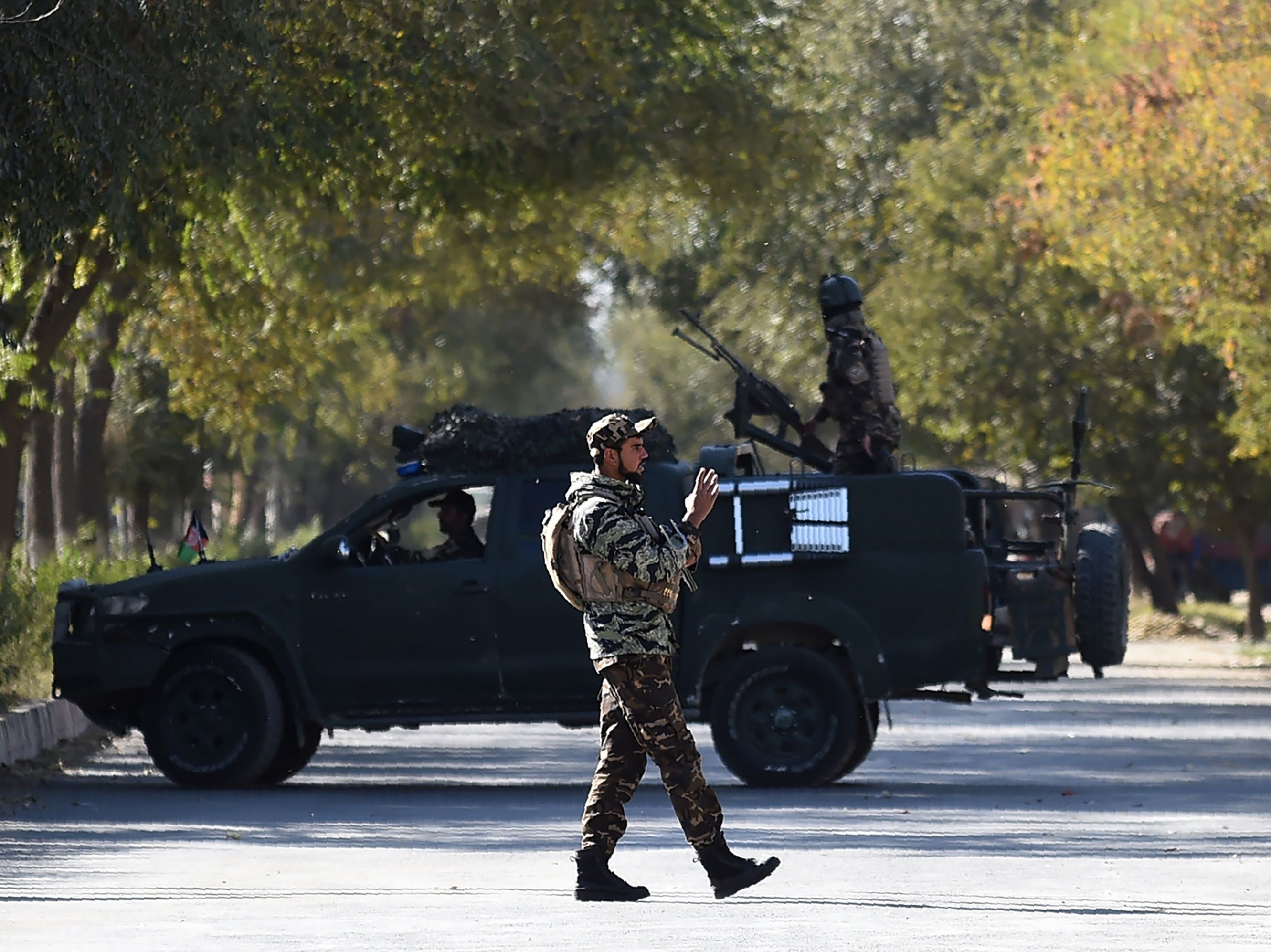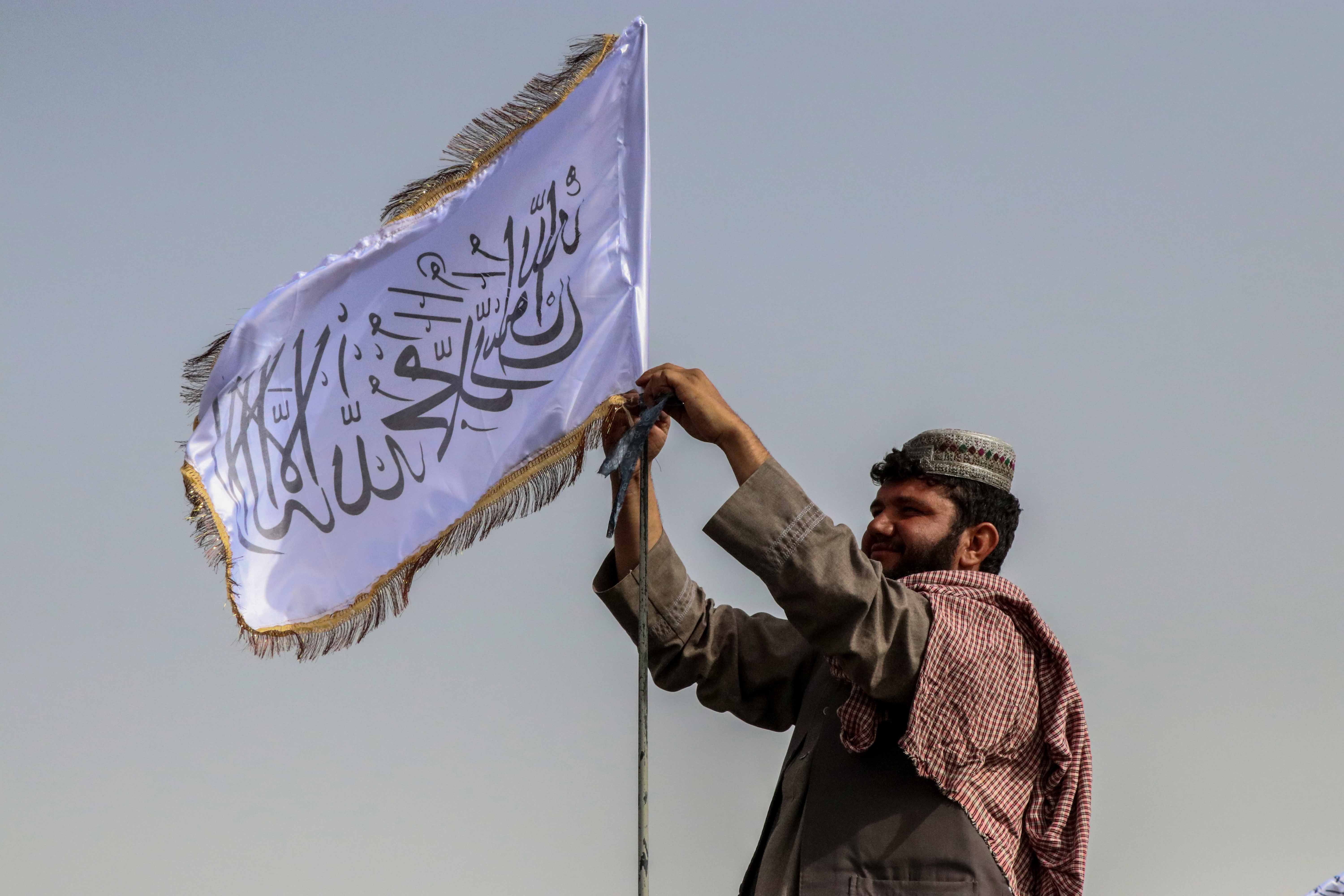This article first appeared on our partner site, Independent Persian
As the autumn semester begins in Afghanistan, the Taliban’s Ministry of Higher Education has informed public and private universities that, following a review by a committee of Taliban clerics, ministry officials and scholars of Islamic law, 679 textbooks have been banned. With immediate effect, universities are forbidden from teaching, citing or using these textbooks.
The directive, signed by the Taliban’s deputy higher education minister Ziaur Rahman Aryoubi and sent to Afghan universities at the end of August, was obtained by Independent Persian. The document claimed the banned books had been assessed for “ideological, cultural, religious and scientific” content, with officials concluding that their contents violated “sharia” principles.
The 50-page list of prohibited titles was circulated to universities, with instructions to replace them with course materials that “do not conflict with Islam”. The ban came into effect on 28 August, according to a ministry official who shared the order with Independent Persian.
Alongside the book ban, Aryoubi instructed universities to drop 18 courses deemed “in conflict with Islamic sharia”. The letter also stated that another 201 courses have been flagged as “problematic” and are currently under review.
Courses on Afghan constitutional law, Islamic political movements, good governance, electoral systems, Afghanistan’s political system, gender and development, human rights and democracy, globalisation and development, history of religion, sexual harassment, women’s role in public communications, as well as modules on topics related to philosophy and women’s studies were banned.
Some of these courses were compulsory for students pursuing degrees in law and political science faculties across Afghanistan. But the ministry ruled them “contrary to the strategy of the Islamic Emirate and incompatible with Islamic sharia” and ordered their removal from this semester.

Sources in Kabul told Independent Persian that banning such a large number of textbooks and reference books will paralyse higher education institutions in the country, who will now need to pour their resources into identifying and sourcing replacements. This is further complicated by the fact that alternatives to some seminal works simply do not exist.
A private university official in Kabul, who asked not to be named, told Independent Persian that the decision would damage higher education in Afghanistan and cripple educational institutions. The academic, who has more than a decade of experience in teaching and managing educational institutions, added: “There’s no substitute for these 679 books, many of which are core texts – unless the Taliban write new ones themselves.”
For example, in Kabul University’s law faculty, the teaching of books such as Globalization: A Critical Introduction by Jan Aart Scholte, International Sustainable Development by Shamsalsadat Zahedi, Comparative Human Rights by Abdul Rahman Salim, Political Terminology and International Relations by Zakia Adeli, Principles of Law by Nasrullah Stanekzai, along with dozens of other titles by Western and Muslim scholars, has been banned.
In education faculties, works like Introduction to Sociology by Bruce J. Cohen, Masters of Sociological Thought by Lewis. A Coser, Political Sociology of Afghanistan by Abdul Qayum Sajjadi, and History of Western Philosophy by Abdul Rahman Alam were also banned.

In the journalism faculty, even books without political or religious content have been placed on the list of banned texts. These are mostly works by Western authors, although works by Afghan and Iranian scholars have also been banned. Examples include Public Relations Theory by Carl H. Botan and Vincent Hazleton, Organizational Communication: Approaches and Processes by Katherine Miller, and Contemporary Sociological Theory and Its Classical Roots: The Basics by George Ritzer. In addition, five other titles on online journalism, mobile journalism, and investigative journalism have also been banned.
The list of banned textbooks spans every faculty and field of study, including theology and medicine. The subjects affected cover human rights, politics, culture, women’s studies, media, security, international law, international relations, Western political thought, the history of Afghanistan and other nations, Islamic thought, political parties and organisations, fine arts, cinema, psychology, social sciences, international criminal law, the foundations of diplomacy, European politics and governance, US history, the history of Western political ideas, Islamic philosophy, and multiple forms of journalism. A review of books is still ongoing, and a final list will soon be issued to universities.
Among the banned books and subjects in Afghan universities, works dealing with women’s rights, Western history and thought, and human rights feature most prominently. Courses such as modern European history, US history, and writings by Golghani Babakerkhil, which were taught in the faculty of social sciences, have also been proscribed.
This follows earlier action by the Taliban’s Ministry of Information and Culture, confiscating hundreds of books from libraries and bookshops in major cities like Kabul and Herat. The titles covered topics such as women’s rights, democracy, religion, history, philosophy, and art and were banned from print, sale or consumption.

Since regaining power, the Taliban have also dismissed hundreds of professors, mostly from faculties of law, political science, economics, psychology, fine arts and journalism, on the grounds that they “opposed” the group’s ideology. The Ministry for the Promotion of Virtue and Prevention of Vice now requires professors, even in medical schools, to attend weekly two-hour sharia sessions that stress the importance of growing their beards and spreading Islamic doctrine in their teaching.
Taliban officials have also increased mandatory religious coursework across all faculties and appointed dozens of clerics to teach the principles of “sharia” to staff, professors and students.
Book review committee: censorship spreads to Afghanistan’s publishing industry
Since their return to power, the Taliban’s Ministry of Information and Culture has operated a 14-member committee to review book content and oversee publishers and printers. The committee, who meets every two weeks, reviews not only new publications but also imported books. It has said that any book conflicting with “Islamic values, Afghan culture or the strategy of the Islamic Emirate” will be banned.
At its most recent meeting on August 25, the committee reviewed 354 books and announced that its decisions would follow.
This wave of censorship is not only pushing Afghanistan’s higher education toward “Talibanisation”, but also stifling the entire country’s publishing and printing industry.
Reviewed by Tooba Khokhar and Celine Assaf



